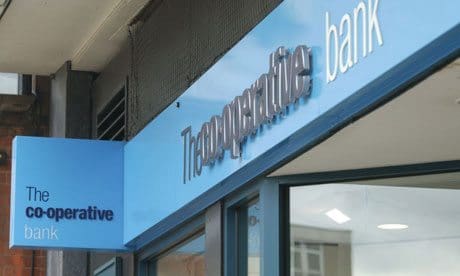Richard Pennycook, who is widely regarded as a turnaround specialist, has been appointed as group finance director. He joins from Morrisons supermarket where he spent eight years in a similar role and restored the City’s faith in the retailer after its botched Safeway acquisition
Mr Pennycook, who recently missed out on his annual bonus after Morrison’s failed to meet growth targets, has simultaneously announced his resignation from the board of Thomas Cook.
He has also worked in the same role at RAC and JD Wetherspoon. He will join in July 1 and replaces Steve Humes, who announced he was stepping down at the end of last month.
The mutual has also hired Richard Pym, the former chief executive of building society Alliance & Leicester, as chair of The Co-operative Bank with immediate effect, replacing Paul Flowers who stepped down after three year.
The Co-operative Group is searching for ways to fill a capital hole in the bank estimated to be £1bn to £1.8bn. It has until the end of the month to come up with a plan that is acceptable to its supervisor, the Prudential Regulatory Authority (PRA). Alongside bondholder “haircuts”, the Co-op is expected to raise funds by selling assets.
Euan Sutherland, the Co-op Group’s new chief executive, has responded to the crisis quickly since taking over last month, installing a former HSBC director as the bank’s new chief executive and retaining UBS and Allen & Overy as advisers.
He is also said to be investigating whether bonuses paid in previous years can be clawed back from former senior executives.
Following the recent crisis, the Bank has been hit by a number of high-profile departures.
Alongside Mr Humes and Mr Flowers, Jim Slack chief information officer at The Co-op Bank, has also recently left. Brian Tootell, the bank’s boss, quit after Moody’s slashed the division’s credit rating to “junk” last month. In February, James Mack, his finance director, left to join another financial services company.
The ratings agency warned that Co-op Bank might need “external support” as a result of new writedowns on bad debts linked to commercial real estate and belated costs linked to its acquisition of the Britannia Building Society in 2009. The Co-op has since denied that it will need a taxpayer bail-out.
The downgrade added to the Co-op Bank’s woes, coming just weeks after it pulled out of a deal to acquire 632 branches from Lloyds Banking Group that analysts thought could bolster the business.


